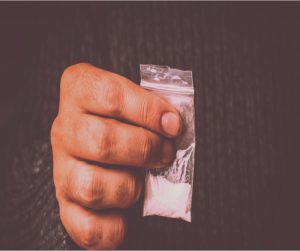[vc_row][vc_column][vc_cta h2="Help Is Only A Phone Call Away" txt_align="center" shape="round" style="flat" color="vista-blue" el_width="sm" use_custom_fonts_h2="true" use_custom_fonts_h4="true"]Call Now 855-227-9535[/vc_cta] Methamphetamine is a highly addictive and very dangerous drug. And still, people abuse it because of the intensely pleasurable experience that it produces. If you take meth, you will feel a euphoric sensation that makes your body relax and loosen up. However, that’s about the only benefit you will get from it. The rest of the experience is just pain and misery—and this is not exaggerated. It will be hard to say no to the drug, even when you’re already going through its adverse effects. That’s how addictive it is. Now, just because you or a loved one is addicted to methamphetamine doesn’t mean there’s no going back. You can conquer all of the challenges created by drug abuse, no matter how overwhelming it can get. The secret is proper addiction treatment. Seeking help from a treatment program is highly recommended because in certain cases, meth withdrawal is deadly. It’s almost as dangerous as an overdose, so you’re gonna want to do it right. Medical professionals will know exactly how to deal with your withdrawal symptoms while gradually lowering your intake. Today we’ll be talking about how addiction recovery for meth abuse works.
How to Quit Methamphetamine
 A structured recovery program will be made for the patient if they visit an addiction treatment facility. It will be based specifically on their condition because everyone goes through addiction differently. The patient’s medical history, drug habits, age, gender, body mass, and other factors will be taken into consideration. By following a treatment plan, the addicted individual will be able to manage their cravings more effectively. An addiction treatment program will usually involve a combination of medical detox and behavioral therapy. This is designed to address the physical and psychological effects of addiction. While detox slowly weans the person off of methamphetamine, the therapy and counseling will help address the underlying issues involved in addictive behavior. There are many options to choose from, and they can all help improve a patient’s condition over time. For example, 12-step programs like Narcotics Anonymous and Crystal Meth Anonymous help members achieve and maintain sobriety with the use of regular meeting participation and support from other members. It’s good to receive this type of social reassurance from people who are going through the same struggles because they can understand how difficult it is. By building a network, the patient becomes more inclined to continue striving for recovery. Inpatient rehab programs provide another option. Patients can attend treatment in a hospital or residential setting, where they can have continuous access to the medical services they need. This is recommended for more serious cases that cannot be managed at home or through outpatient treatment. [maxbutton id="2" ] Speaking of which, outpatient programs are for those with relatively minor cases, and those that cannot stay in a facility for the duration of treatment. Although it is less focused compared to inpatient, this is at least cheaper and less restrictive. This means the patient can go about their recovery while managing their real-world responsibilities. They won’t be separated from their usual triggers and temptations, so this might be a bit more challenging for severe cases of addiction, but it has its uses. There are many other options for people who want to reclaim their sobriety. The options are there if people seek them out. What’s important is you get started as soon as possible. Look for an addiction treatment facility near you today.
A structured recovery program will be made for the patient if they visit an addiction treatment facility. It will be based specifically on their condition because everyone goes through addiction differently. The patient’s medical history, drug habits, age, gender, body mass, and other factors will be taken into consideration. By following a treatment plan, the addicted individual will be able to manage their cravings more effectively. An addiction treatment program will usually involve a combination of medical detox and behavioral therapy. This is designed to address the physical and psychological effects of addiction. While detox slowly weans the person off of methamphetamine, the therapy and counseling will help address the underlying issues involved in addictive behavior. There are many options to choose from, and they can all help improve a patient’s condition over time. For example, 12-step programs like Narcotics Anonymous and Crystal Meth Anonymous help members achieve and maintain sobriety with the use of regular meeting participation and support from other members. It’s good to receive this type of social reassurance from people who are going through the same struggles because they can understand how difficult it is. By building a network, the patient becomes more inclined to continue striving for recovery. Inpatient rehab programs provide another option. Patients can attend treatment in a hospital or residential setting, where they can have continuous access to the medical services they need. This is recommended for more serious cases that cannot be managed at home or through outpatient treatment. [maxbutton id="2" ] Speaking of which, outpatient programs are for those with relatively minor cases, and those that cannot stay in a facility for the duration of treatment. Although it is less focused compared to inpatient, this is at least cheaper and less restrictive. This means the patient can go about their recovery while managing their real-world responsibilities. They won’t be separated from their usual triggers and temptations, so this might be a bit more challenging for severe cases of addiction, but it has its uses. There are many other options for people who want to reclaim their sobriety. The options are there if people seek them out. What’s important is you get started as soon as possible. Look for an addiction treatment facility near you today. 
The previous post How to Quit Methamphetamine: A Guide to Recovery is courtesy of https://www.rehabnear.me/
from
https://www.rehabnear.me/methamphetamine-recovery/

No comments:
Post a Comment